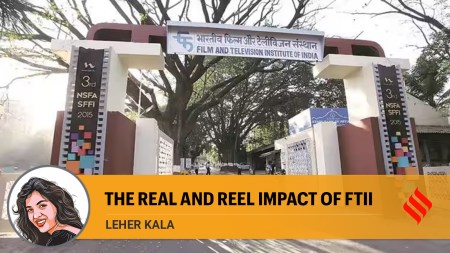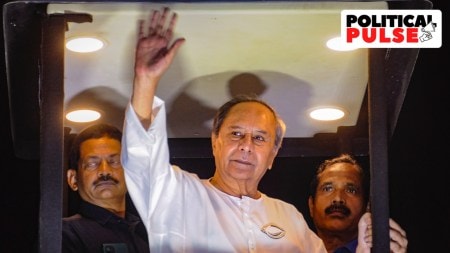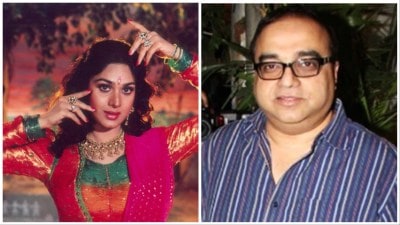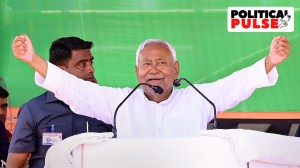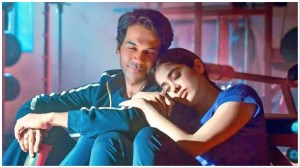- India
- International
Mohammed Zahur “Khayyam” Hashmi: ‘He created songs and melodies like a craftsman carves wood and stone’
Mohammed Zahur Hashmi, or Khayyam, the composer who took us through that journey and many others, died Monday due to septicemia and lung infection in Mumbai.
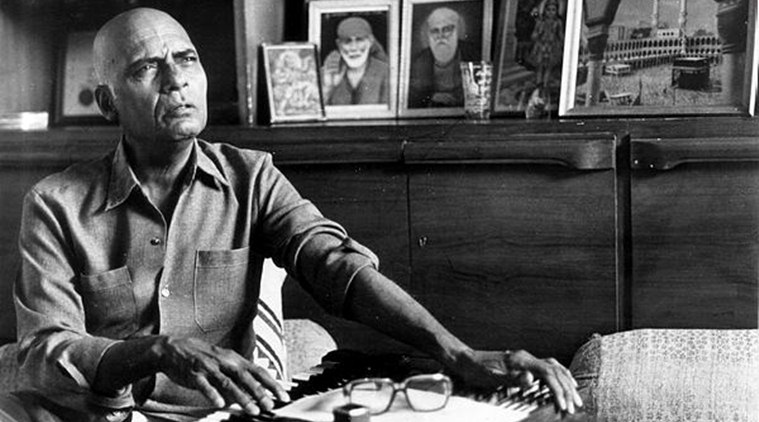 Khayyam was admitted to hospital on July 28 with pneumonia and suffered multi-organ failure.
Khayyam was admitted to hospital on July 28 with pneumonia and suffered multi-organ failure.
Kabhi kabhi mere dil mein khayaal aata hai
Ki jaise tujhko banaya gaya hai mere liye
Tu ab se pehle sitaaron mein bas rahi thi kahin
Tujhe zameen pe bulaya gaya hai mere liye
Kabhi kabhi mere dil mein khayal aata hai…
If poet and lyricist Sahir Ludhianvi managed to weave the pangs of separation and intensity into these words, the kaafiya (rhyme) needed a Khayyam and his magic melody to be immortalised.
The raga was the heptatonic night beauty, Yaman, and the poet and the composer seemed to have poured their hearts into it. It wasn’t just another piece of poetry, which is why it was difficult to set it along the seven notes. In crafting this piece for Yash Chopra’s Kabhie Kabhie (1976), the two found each other to create what’s nothing short of sublime.
Mohammed Zahur Hashmi, or Khayyam, the composer who took us through that journey and many others, died Monday due to septicemia and lung infection in Mumbai. He was 92.
Khayyam was admitted to hospital on July 28 with pneumonia and suffered multi-organ failure. The composer is survived by his wife and playback singer Jagjit Kaur.

“He created songs like a craftsman carves his wood and stone. The immaculate knowledge of ragas and a wondrous understanding of lyrics resulted in songs like Kabhi kabhi. Composers like him come once in a lifetime. You pick any piece by him, they are all so melodious,” said composer Lalit Pandit, who used to be one half of the famed Jatin-Lalit duo and has worked closely with Khayyam.
Another film that showcased Khayyam’s music was Muzaffar Ali’s Umrao Jaan (1981), starring Rekha. The ghazal-based compositions, such as Zindagi jab bhi teri bazm mein laati hai humein, Dil cheez kya hai and In aankhon ki masti, among others, were interspersed with the story of a young girl who is forced to become a courtesan in 19th century Lucknow.
Every piece by Khayyam was unique, and established Asha Bhosle as a serious singer — until then, she was known more for her fast-paced numbers.
Director Rajeev Goswami, who recently recreated Umrao Jaan for theatre, said, “He had come to Delhi for the premiere of our show in May. He was very weak when we met him but he had still come as Umrao Jaan was close to his heart. He made soulful melodies, heartfelt and meaningful. It’s a huge loss.”
Besides Umrao Jaan, for which he won a National Award, Khayyam composed tunes for Shola aur Shabnam (1961), Noorie (1979), Bazaar (1982), Dil-e-Nadaan (1982) and Thodi si Bewafai (1980), among others.
Born in Nawanshahr, Khayyam ran away to Delhi to learn music but was brought back. A film fan, he later went to Lahore to learn music from Baba Chishti and reached Delhi to learn from Pandit Amar Nath. He moved to Mumbai (then Bombay) and made his debut with Heer Ranjha (1948).
At a time when his contemporaries like R D Burman were working with Western sounds and scales, Khayyam stuck to what was quintessentially Indian. One of his first hits was Jaane kya dhoondti rehti hein ye aanken mujhmen, sung by Mohd Rafi.
“He was quite short-tempered in his early years, which is why he could only get along with a few composers. But that said, no one could create a melody like he could. There won’t ever be another Khayyam saab,” says Pandit.
Photos
Jun 03: Latest News
- 01
- 02
- 03
- 04
- 05




